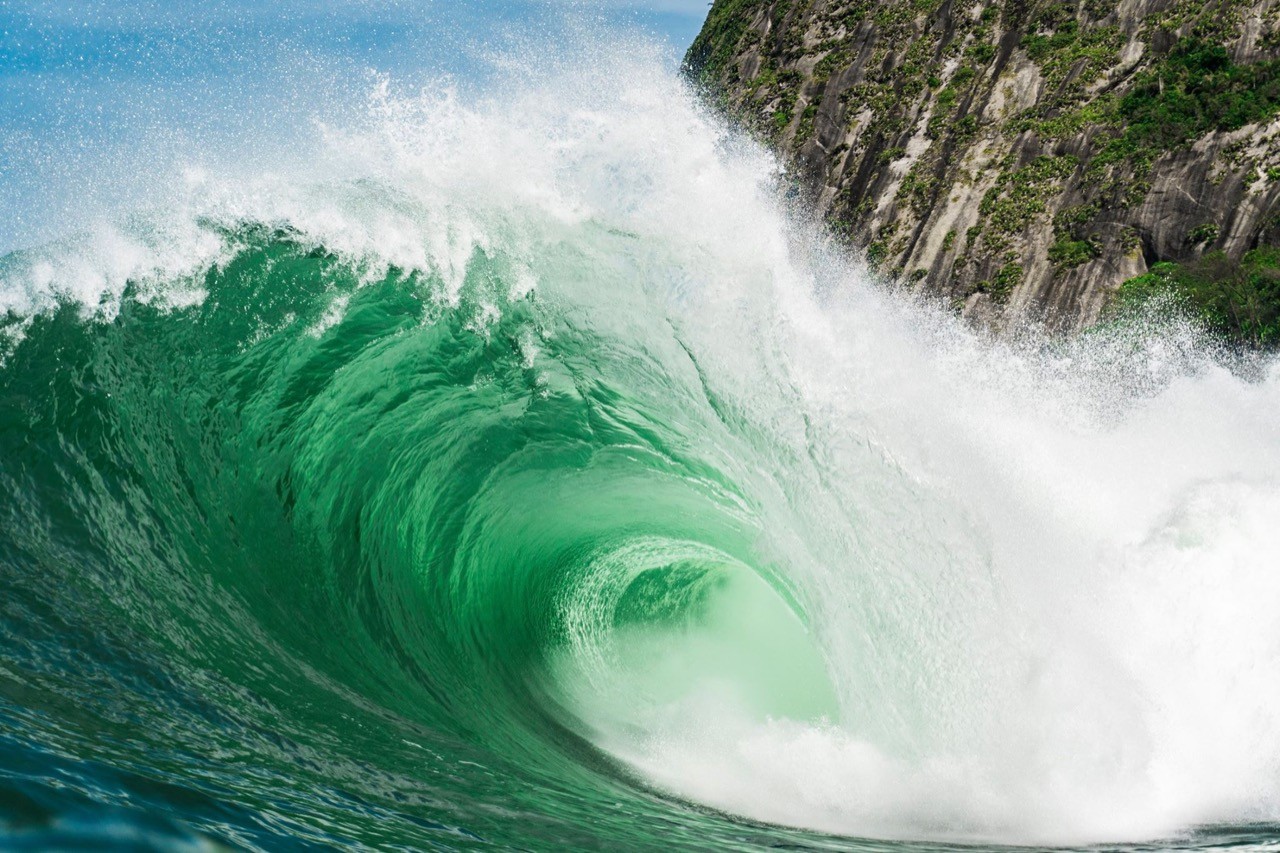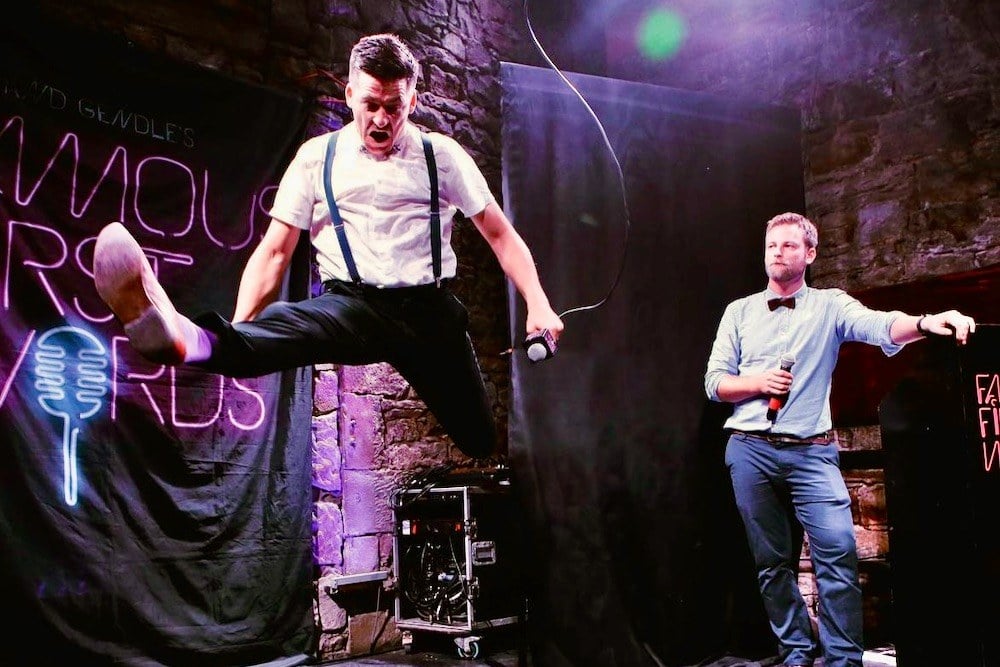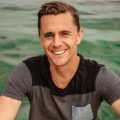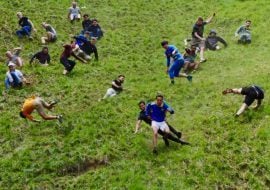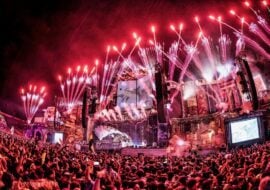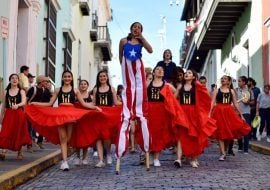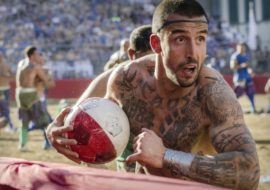Big Wave Surfing: Andrew Cotton


Episode 10: Podcast with Andrew Cotton, professional big wave surfer and motivational speaker
In this episode, Oli Russell-Cowan chats to Andrew Cotton, one of the world’s most respected professional big wave surfers. After being a plumber and beach lifeguard Andrew started his professional surfing career in 2013 after surfing massive winter swells whenever he could. Chasing the biggest waves in the world has been his goal ever since. How big of a wave can someone surf? What’s the limit?
In their conversation, Andrew dives deep on how he became one of the few big wave surfers in the world, his love for the ocean, and Nazare in Portugal. He explains how he trains, breaking up the season, training sessions, and creating goals for each.
The main takeaway of the chat was that you need to remove all negative thoughts when you ride these monster waves. Don’t think about falling off or not making it. Think about going deep and going fast.
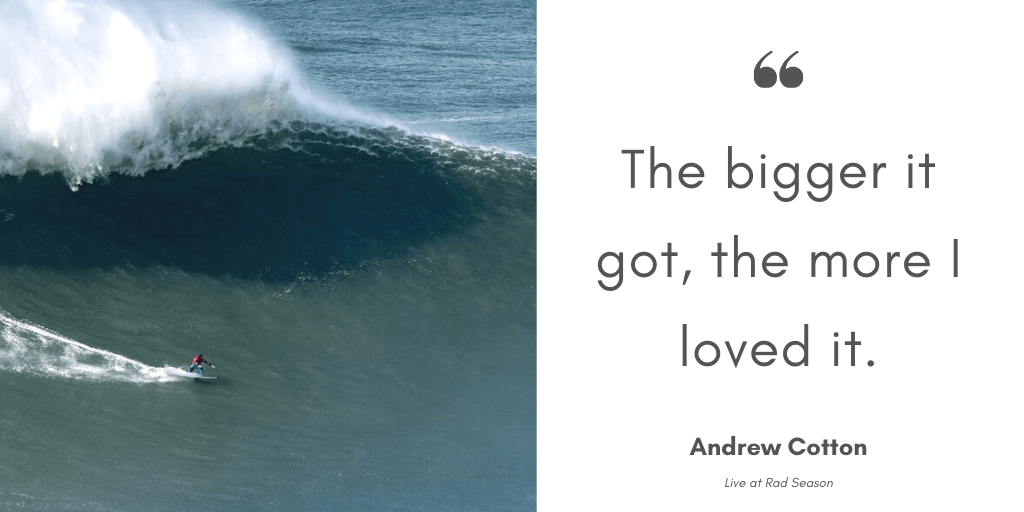
Listen to the podcast:
Dive in and listen to this episode on Apple Podcast and Spotify.

Read the transcript:
Rad Season: Hi, guys, it’s Oli from Rad Season. I’m excited to be joined today by big wave surfer Andrew Cotton.
Cotty, Thanks for joining us.
Andrew Cotton: Hey mate, thanks for having me.
Oli: Whereabouts are you at the moment?
Andrew: I am in my home in Braunton, North Devon, England. It’s been sunny the last few days and the surf’s been pumping. It’s been amazing.
Oli: Good stuff, man. I guess I’d like to take it back to how you got into surfing and where you grew up?
Andrew: Well, I grew up in North Devon. I was born in Plymouth, which is on the South Coast in Devon. My parents moved to the north coast when I was about seven. Then that’s when my passion for surfing, surf clubs and surf lifesaving first started. It sort of escalated from there.
Oli: I’m from London originally and I remember after work I tried to leave work and go surfing. Driving down from London to either Cornwall or Devon doing the whole weekend warrior thing to go surfing.
How did you go from surfing small waves in the UK to surfing some of the biggest waves in the world in Portugal, Ireland and Hawaii? What was the transition point?
Growing up surfing Croyde
Andrew: I don’t know. I honestly don’t know. It’s interesting like now everyone sort of said, Oh, you know, ‘you’re a big wave surfer’. So I’ve been put in this box, but what’s a big wave?
I remember when I was learning to surf or in my late teens, Croyde four foot was as big as it got, you know, it was like the holy grail. I was just thinking of pushing it at Croyde. It’s my home beach, there’s loads of good surfers to look up to and everything revolves around Croyde low tide. I just enjoyed it.
‘The bigger it got, the more I loved it.’
But when I say big, it was probably like the biggest Croyde gets, four to six foot maybe. So it’s obviously not that big but when you’re 14, 15 it was massive. I remember the bigger it got the crowd thinned out and the more I loved it.
There are two sorts of reasons, technically I was never a very good small wave surfer or contest surfer. I liked being on the edge a little bit, pushing it. I felt quite comfortable in the sea. I did a lot of swimming as a kid, surf lifesaving, those sorts of things. The ocean was quite a comfortable place.
First Winter Seasons in Hawaii
From there leaving school, I just got a job and worked in the surf industry and chased the winters around. Again I just ended up in places where I naturally got pushed. So I spent a few seasons in Hawaii which is amazing, such a good experience. At the time Waimea was the big wave spot in the world. Paddling there when I was 18, I paddled some big days there way out of my comfort zone but giving it a dig.
Oli: Were you surfing in Ireland before that?
Andrew: No, I just always assumed that if you want big waves you’d have to go to Hawaii, Australia, or South Africa, not in Europe. There wasn’t really a big wave scene in Europe at that point.
I always did that and traveled every winter. It wasn’t until I was 25, 26, 27 when reality kicked in. I couldn’t continue traveling every winter for two or three months. Priorities started to change.
You start to look at your life a little bit. Living off discounted food from Foodland in Hawaii suddenly wasn’t looking so much fun anymore.
I started looking closer to home. One of my friends said Ireland had massive waves. I didn’t believe him at first. That’s when I started going over.
Oli: So when you were 25 what happened then? Didn’t you retrain?
Andrew: Yeah, so I’ve been working in the surf industry which was amazing.

Surfing is not a job, it wasn’t on the checklist. This kid is a dreamer. The lady very kindly looked into the surf industry and she got me a job in a surfboard factory in Woolacombe, Gulfstream. So I did that for 10 years. I worked in retail, then in the factory. I shaped, glassed, and sanded and did all the jobs that go with it.
I think it was more the pressure from my parents. My dad was that classic, ‘you can’t do this forever, son, what are you going to do with your life?’
I’m quite happy, what are you on about? You’ve got to get a trade so he pushed me. Not pushed me but gently turned me a little bit and said you’ve got to get a trade. So I retrained as a plumber which was three years of college and then I did an apprenticeship.
Then I finished my apprenticeship. I worked full time as a plumber probably less than a year. Then I realized Nah, if this is it until I’m 60, I don’t know what I’m going to do. I didn’t last long.
Oli: After that, what happened? Were you like ok I’m going to try and push the surfing?
Andrew: My friend from Ireland Al Mennie was a keen big wave surfer as well. He was saying you know, Ireland’s got some amazing waves, massive. You don’t have to fork out a grand for a plane ticket, you don’t have to sit in Hawaii for months hoping for a swell. We can hit it on the charts. So I just started doing that.
I quit my job, which was kind of my first proper job. I was installing solar panels and underfloor heating and it was a salary. It was ticking all the boxes. I quit that and my parents were like what the hell are you doing? From being in Devon it’s quite good to have a stable income and probably could have got a mortgage. Those sorts of things. I quit that and decided to do odd plumbing jobs.
I did ding repairs and I re-trained as a lifeguard. I just thought I had this idea that I wanted to surf more but still have a little bit of money. Lifeguarding was perfect. They train you on all the equipment and training on jet skis. You get to learn some amazing skills and you get to train every day in the sea.
I was just like, they’re gonna pay me to do that. Sign me up! I did that for a few seasons in the summer. Then I focused on the winters trying to hit the swells. I spent a few winter seasons in Ireland, it was cold over there but we did alright. I got a few waves.
Surfing Nazare in Portugal
Oli: Nice. When did you start going to Portugal?
Andrew: 2010. When I started going to Ireland, we started getting more exposure from brands. I started working with analog and Gravis. So I was getting a bit of money from sponsorship and then I started going to Portugal in 2010.
Oli: I moved out to Lisbon in September last year. I went to Nazare for the first time during the comp.
Andrew: What, the tow comp just on?
Oli: Yeah. You see photos and you see videos of it and it’s massive. I’ve been to Puerto Escondido, Mexico before. And yeah seeing it driving up, going down the road and walking to the lighthouse when Nazare was on, it blew my mind. I’ve never seen anything like it.
Andrew: It’s hard to believe. How is it so relatively new? It’s been there, right here. You can walk to it. You can see it right there! All the myths, the hundred-foot wave was going to be at the Cortez Bank. It’s a mission to get to. It’s in the middle of the ocean, you know?
Oli: Nazare a quick drive from the airport.
Andrew: Yeah, it’s 45 minutes from Lisbon airport.
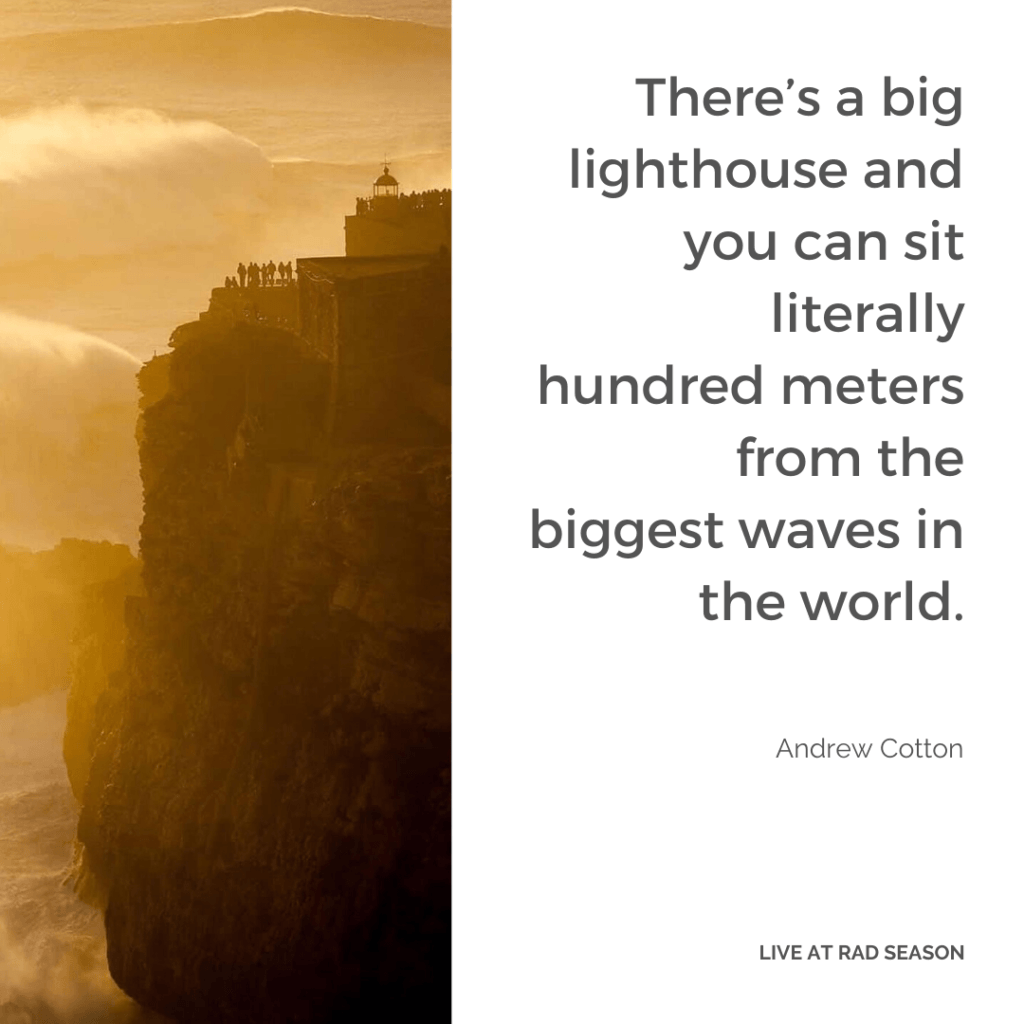
Oli: When did you first surf Nazare?
Andrew: Garrett McNamara was doing a project there with the City Hall of Nazare. He was the talent. They wanted him to surf the wave, North Beach, to see how big it was. It was just a tourist thing.
We got some amazing waves. They obviously rightly believe that it was the biggest wave in the world. A few of the crew in the City Hall there. They just had no-one to surf it.
Saying that there is a real hardcore group of bodyboarders that hang around Nazare. You need a jet ski and stuff you know. They were charging it when it was like six to eight feet, super heavy. Nazare is really good when it’s small, like really good. Now you know the coast when it starts getting big, there are so many good waves on that coast. Why would you want to hang around Nazare?
Oli: It just opens up everything you can even go to the city where there are point breaks.
Andrew: I suppose there’s so much water moving, it’s so dangerous. I suppose everyone was looking at it and going to Supertubos or as a few slabs down the road into Lisbon. So I suppose it just got ignored.
Garett needed people to help him basically. He needed jet ski drivers and some safety. He got hold of me and Al Mennie to support him. I think we weren’t the first on the list. You know, there were a few other guys before us. I think Garrett was testing the waters with a few different people. He just phoned us up and was like, can you drive a jet ski? Have you driven a jet ski in a beach break? I sort of hadn’t, but I just said, ‘Yeah, yeah, I can do it. It will be fine.’
Oli: It looks pretty hectic driving a jet ski on a beach break.
Andrew: ’I can drive a ski, it will be fine.’ Then I got there and thought shit, I’m not ready for this.
It was interesting. You know, I learned so much. I was very out of my debt and I’ll happily admit that. Garrett, I like to say he was patient. He was also very focused and very vocal. I have lots of days of just him shouting at me constantly.
I was there to drive a jet ski. My passion is surfing. I didn’t want to drive the jets the whole time. I always knew in the back of my mind that he can’t surf the whole time. You know? Like, I just knew that you know? There’s gonna be a point where he’s gonna say, I’ll drive the jet ski. Garrett loves driving the jet ski as well.
So from going there as hired help, to safety to then towing Garrett and then him towing me. That’s just how I went. Then all the paddle sessions came in.
‘I learned so much in such a short space of time.’
Coming from England I didn’t have access to all that information because it’s specialized information, isn’t it? You know, that knowledge is so specialized and how do you tap into it? I sort of just fell in there. Understanding it and seeing what he was riding, what he was using like boards, safety, how you approach waves, how you drive the jet ski properly. I was like a sponge. This opportunity is only gonna happen once so you just gotta take it or just give up and go back to plumbing. So it was either this or plumbing.
Oli: You drove Garett into the Guinness Book of records for surfing the biggest wave. How did that change everything?
Andrew: It went under the radar, you know the guy that drives the ski is a thankless task. For me it wasn’t about it, it wasn’t about recognition at that point. I was just there to experience and to understand.
‘Weirdly we just swapped. Al had been surfing then I had been surfing and we just swapped and that set came through.’
I was close to getting that wave. He’s really interested, you know. On that wave, he was screaming at me to put him deeper. It was so big and I was kind of thinking I don’t know Garett. I kind of put him on the shoulder and he was a little bit pissed off. I think if he’d gone any deeper I don’t think he would have made it. It probably wouldn’t have been what it was. How he positioned himself and how he wrote it was just perfect. He got blasted by the white water but just squeaked around and out of the way.
I think if he had been a few feet deeper, I don’t think he would have made it.
All those things happen for a reason. It was definitely good to see how he approached the waves, how he surfed, and how he liked to be driven and drives.
Oli: After that were you then going back and doing winter seasons consecutively?
Andrew: Things sort of changed. The project ran for three years. It was called the North Canyon Show. That was usually October, November then he came back for big swells.
I just realized I’d be sitting in Ireland usually prior to that. Ireland gets amazing waves, but it doesn’t always get that big very often. It gets massive but very rarely.
Whenever I’ve traveled you get one big swell a season or two big swells season.
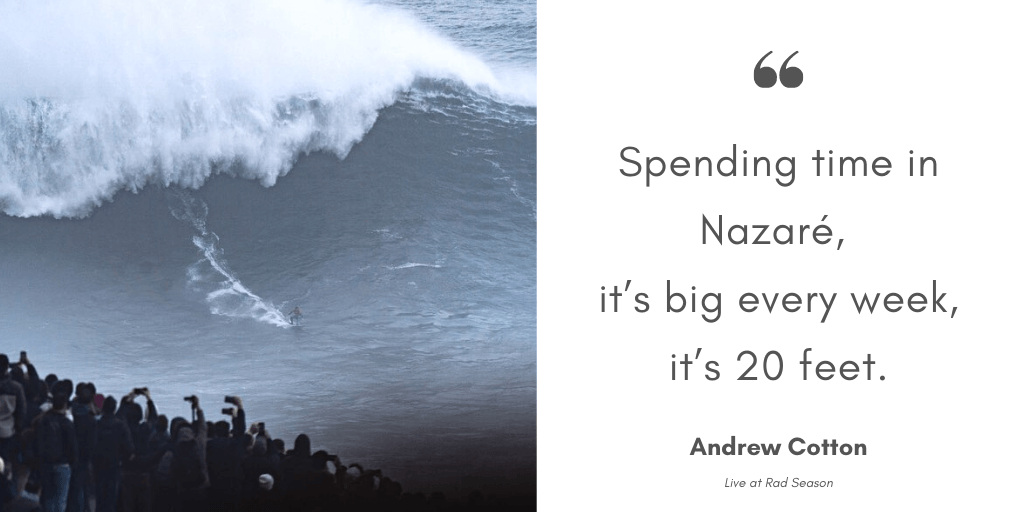
It’s like, whoa. Big wave surfing is about and trying to normalize. You want to get more and more comfortable in the most extreme situations. The best way to do that is just to be in the most extreme situations. If you can only do that once a year. It’s going to take a lot of years to get that experience. With Nazare, you’re doing it every week through the season.
So you can imagine big waves becoming more and more normal. So therefore everything was progressing very quickly for me personally. It was just nuts. No one was really on the ball with it.
We had it for like three years almost by ourselves.
Oli: Would you say because it was a regular that helped you guys with the mental factor of riding these kinds of waves?
Andrew: Yeah, because it takes time. It does take time, you need to be on it with your safety and your team. It is very much a team sport when it gets that big in that environment.
You can be the best surfer in the world but unless you’ve got a good safety team, a good guy on the radio and a good ski driver you ain’t getting waves. You need a good solid team. We worked together a lot, We had the monopoly of it for a few years which was good.
Breaking the back surfing Nazare in 2017
Oli: In 2017 that was when the accident happened.
Andrew: Yeah, I broke my back in 2017.
Oli: How did you then go back physically and mentally?
Andrew: For me, it was just an injury. Although it was quite a severe injury and it could have gone either way. That’s just how it goes.
I was devastated that morning when I layed on the beach. I was kind of more angry at myself. With the numbers, I knew it was gonna be a special day. Sometimes there are days when it’s worth putting it all on the line and taking those risks.
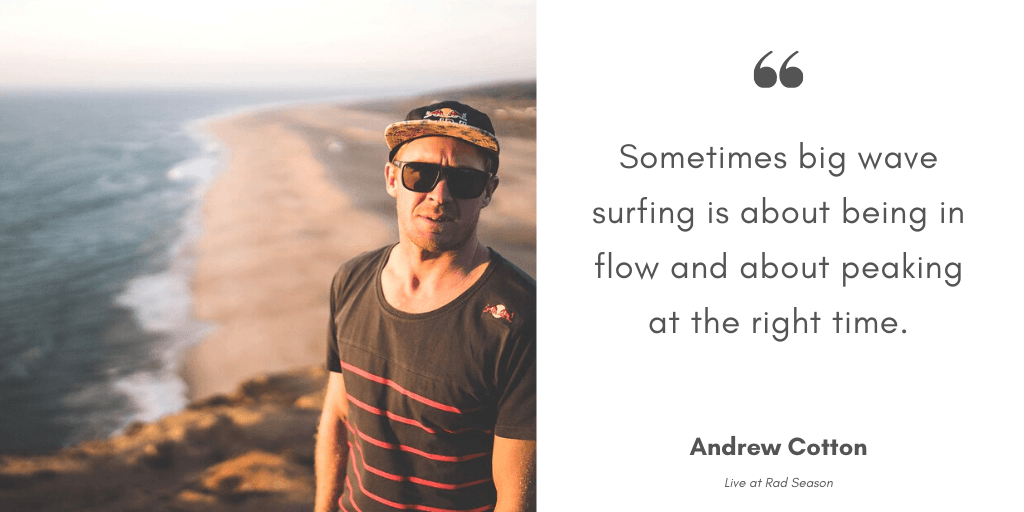
Let it all come together and make sure you take the risks at the right time on the biggest wave. If it comes off that’s how you are going to ride the biggest wave in the world. It’s all about timing and about you peaking with the ocean at the right time.
I lay on the beach and I was like, ‘I’ve blown it.’ It was 10 o’clock. It’s like, I knew the swell was going to peak in the afternoon. I was just so angry. Rodrigo Koxa got the world record that afternoon. At one o’clock, two o’clock.
I should have been out there. That’s how annoying it is. You live and learn. That’s how you learn.
Rehab after the injury
The rehab and stuff I don’t mind. I quite like putting in the hard work if I know. I was really, really fortunate. I got checked out from hospital in Portugal. Obviously they said, you’ve got a compression fracture, here’s a brace. Lie down, don’t stand up, don’t say it, you know, so it’s all very basic.
It was kind of like shit, how’s this gonna play out you know. Red Bull got me straight to a specialist in Manchester with a load of X rays and scans. Then I saw the physios and they just mapped it out.
If you do all these things right then you can go surfing again. For me mentally that’s what I did. I blanked out all the surf I was missing. I just threw myself into it and used it as an opportunity.
It was tedious rehab. Breaking your back, there’s a lot of trans abs and core. I was walking around in a swimming pool for hours. I was fortunate to have really amazing support, not just from sponsors, but also friends and family.
Oli: How long did rehab take before you were back in the water surfing?
Andrew: I think I was surfing at home. It’s hard because you can surf but you’re not really surfing. It’s frustrating. You have to ego check yourself to just take it slow. I think I was back surfing big waves within a year. I was back at Nazare within a year.
Oli: How was that first day going back to Nazare?
Andrew: You do question it. Everyone says oh you know it’s a bit dangerous and maybe you’re lucky. You question, is this my passion or is this the job? Why am I doing this?
As soon as you get back out there, I said, I’m just gonna take it easy. Maybe I don’t want to do it. Then you get on the rope and get one wave and you take it easy. You get another one, you go a bit deeper and then you go, I want the biggest one, I want to really get really deep.
Then that answers all the questions. I am doing this because I love it. It’s a passion. I’m not doing it for anything else. I love doing it. I think that’s a really important thing. If you’re following your passion and your heart, things play out for the better. Rather than thinking it’s a job or doing it for exposure or money.
I followed the money with the plumbing. It didn’t matter how much I was gonna earn in salary. If you hate plumbing, you hate plumbing. It all works itself out.
Oli: What’s going through your head when you let go of the rope? What are you thinking about?
Andrew: Everything naturally just blends when you’re surfing. I think if you think oh I don’t want to get injured or don’t go too deep that’s when bad stuff happens. If you just naturally surf and you get into a nice flow, you don’t want to be thinking. You just want to be surfing. I like to look at the waves before and mind surf. I think about the lines I want to take and how I want to push it.
Every session or every season is different with slightly different goals and limits that you want to push.
I don’t think about falling off. I don’t think about not making the wave. I think about going deep and going fast. I don’t want to go too deep, I might fall or might get hurt, that’s gotta get out your brain.
Oli: With everything that’s going on it, how have you been training? What have you been up to at home?
Andrew: I’ve got a great little setup here. Some weights and bikes. I love cycling, I’ve been cycling quite a lot and North Devon’s amazing for cycling. I’ve been surfing a lot, a few yoga sessions a week, maybe some breath stuff with Andrew Blake who I train with at home. He comes to Portugal as well. He and I do quite a lot of stuff together.
Oli: You guys run a fitness retreat together, right?
Andrew: It’s not a retreat, it’s a course. It’s not a big wave course, it’s kind of like an ocean confidence course. It’s just bits of my training, which I found really useful, I am really interested in and which I’ve benefited from.
Those sorts of things are kind of unique. So being able to just share that knowledge and help people. Surfing is quite personal. What’s their big wave? To him, it might be one foot but to someone else, it might be six feet, to me, it might be 80 feet. Everyone has their big wave and their fear and how you get over that.
Oli: Any personal goals that you’ve got set out for this year?
Andrew: My personal goals always stays the same.

Or the biggest wave of the year. I think for a few years I beat myself up a bit, trying to do that. There are the top goals but the real goal is just to be on every swell, enjoy my surfing, and take calculated risks. It’s a marathon.
So these are the things I have to tell myself constantly. I do want to just go nuts.
Oli: Just get too excited on the first day.
Andrew: Yeah, you gotta check yourself. This last season it had the competition which was the pinnacle of the season. Leading up to that, you want to be on every swell. But you can get injured and it’s really easy to get injured at Nazare. Not even just surfing, you can flip the ski and do your arm in or your leg. You’ve seen how it is. It’s not just the surfing that’s dangerous. Just being out in the ocean in those waves is dangerous.
It’s calculating those risks, surfing the right swells, not being too greedy, and getting in the right waves. Surrounding yourself with really good, positive people with similar goals and I think it will come together.
Oli: You’ll be back to Portugal hopefully later in the year?
Andrew: Yeah. I think Portugal is relatively open.
Oli: Yeah. They opened up a couple of weeks ago. The border with Spain opens on July 1st. People can come in from the UK and EU as of a couple of weeks ago.
Andrew: The season starts late September, so yeah, fingers crossed to get back and get back into it.
Oli: If anyone wants to get hold of you what’s the best way?
Andrew: I’m probably most active on Instagram but I do all the social stuff like Twitter, Facebook, and Instagram. So that’s probably the best way to see what I’m up to.
Oli: It was great speaking to you man.
Andrew: Yeah thanks very much. Cheers Oli.
Watch the video:
Photo Credit: Andrew Cotton
Missed the last episodes? Check them out!
Episode 7: Lifestyle Design – Carl Paoli
Episode 8: World Surf League – Joe Turpel
Episode 9: Wife Carrying – Julia Galvin
Last updated on Jul 29, 2020Have you subscribed to our Newsletter or Podcast? Listen to us on Apple Podcast and Spotify and follow us on Facebook, Instagram Twitter and YouTube.
Accommodation near Croyde, UK
Rad Season is providing you with rentals and hotels at the lowest prices available online. Book your stay near Croyde, UK using the map below!


